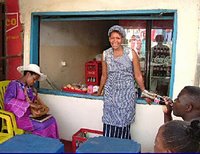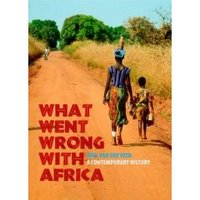NaijaBlog writes about the response to the latest Airplane Crash in Nigeria:
"...Never has the opiatic, under-developing effect of religion in Nigeria been so clear to me as it was last night, watching NTA. There will be no major change in the way aviation is run here, so long as the crash is classified as an Act of God, and our response to it conditioned to be one of prayer. Religion Nigerian-style numbs every sinew of the body, freezes the brain, and erodes any possibility of rational response, and above all, transformative action. It is, at present, a malign force – a force which does not transform, which does not heal. It is, as Soul says, the most vicious colonial effect.
It could, of course, be altogether different. Religion (whatever the hue) can be a force for change, for good. Prayers can probably be answered, in a sense (one crystallises intent through quiet moments of contemplation). But not where there is no accountability, not where religion is used as a political tool for repression (explicit or otherwise), not where material wealth is taken to be a necessary precursor to spiritual wealth..."










